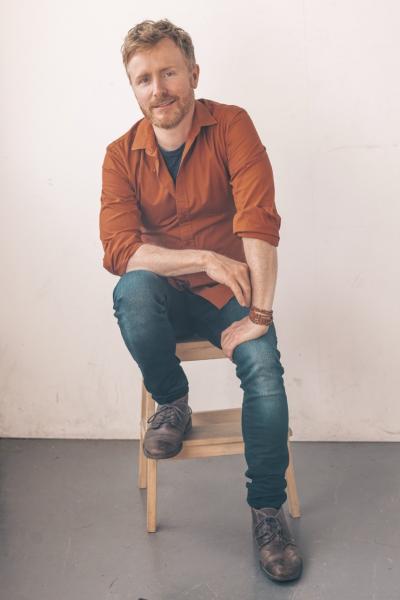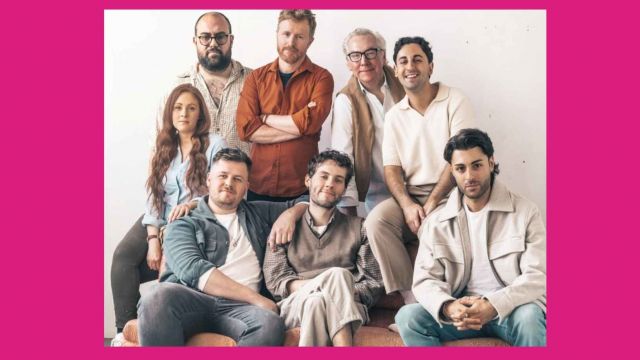The Last Sunday In June
After putting his career on hold for more than a decade to rebuild his life following a devastating brain injury, Melbourne-based theatre producer and actor Ross Larkin is finally set to achieve a milestone many thought impossible: producing and starring in the Australian premiere of Jonathan Tolins’ acclaimed play The Last Sunday in June.
In 2014, Larkin sustained a traumatic brain injury that left him battling chronic fatigue, cognitive difficulties, extreme insomnia and profound changes to his personality and social confidence. What followed was a ten-year journey of painstaking recovery, relentless determination, and gradual healing.
Ross Larkin was interviewed by David Spicer.
Tell us a little about your theatrical life before your injury?
I had trained and acted professionally for around fifteen years by that point, which included a couple of shows in NYC such as the role of Benedick in an Off Broadway run of Much Ado About Nothing. I was doing well and, like most artists, had dreams and plans that felt within reach. And then the injury made everything stop for the longest time.
Are you comfortable to share any details of the accident?
I won't go into detail but it was actually not an accident as such. It was something that was done to me that could have and should have been avoided. I blamed myself for many years.
What injuries did you sustain?
In a nutshell - it was all internal. An injured brain basically which causes a gamut of symptoms that can relate to the eyes, cognition, sleep, energy and even personality. 
What sort of treatment did you need?
Insomnia and chronic fatigue have been my biggest challenges so I have seen countless sleep specialists and various doctors but, as is often the case with brain injuries, there is no hard and fast fix. Lifestyle changes is one way to address certain symptoms. For example, I stopped drinking alcohol because my body couldn't seem to cope with it anymore. Even one drink would make me feel terrible. I also found that cutting right back on sugar and processed foods helped, as did other basic things such as exercise and nature.
How long before you could consider returning to the stage?
It took a couple of years before I could consider it, and it was a kind of slow and gentle return, nothing major initially. I did two shows and then realised I had a lot more healing to do, so spent another four or five years getting myself to a stronger place. Now I've improved to the point where I can take on lead roles and have no issues, and with The Last Sunday in June, I've proven to myself that I can produce as well as play a large role, which has been a huge amount of work but I'm proud to know I can do it and do it well.
Do you think your ordeal has made you a better actor?
Yes, without a doubt. I've had to spend lots of time soul searching, looking within and getting in touch with something deeper. I believe it's made me a more compassionate and empathetic person which are great skills as an actor.
What did it feel like when you finally got back into rehearsal?
It felt like home. It felt completely right and a huge, satisfying relief to nourish that part of myself again.
Why this play now?
A few reasons. I fell in love with it while reading it because I'm a lover of comedy, I found the humour irresistible. It's genuinely funny throughout but there are also important messages about identity and authenticity. The fact that it has never been done in Australia before also greatly appealed to me. Considering it was successful and well received in America, I was surprised no one had ever brought it here before.
What is it about?
It's about a group of friends watching the pride parade from their apartment window in New York City. Gradually, more and more people drop by. Secrets are revealed, bombshells are dropped, and relationships are tested. It's the type of comedy that is rooted in drama and has a lot of heart and is very much relevant to today's cultural and political landscape.
What is your role?
I play the role of Brad. He's one of the friends who drops by. He's direct, outspoken and flamboyant and can be quite catty which is fun.
Do you feel a connection to the narrative?
Yes without a doubt. It's a diverse group of friends from the LGBTQIA+ community which really spoke to me as a queer person. It feels only recently that more authentic queer stories are being told on our stages in more than an occasional tokenistic way and The Last Sunday in June is absolutely worthy of finally being seen and celebrated here and now.
The Last Sunday In June is on stage at Chapel off Chapel from October 29 until November 8.
https://chapeloffchapel.com.au/show/the-last-sunday-in-june/

